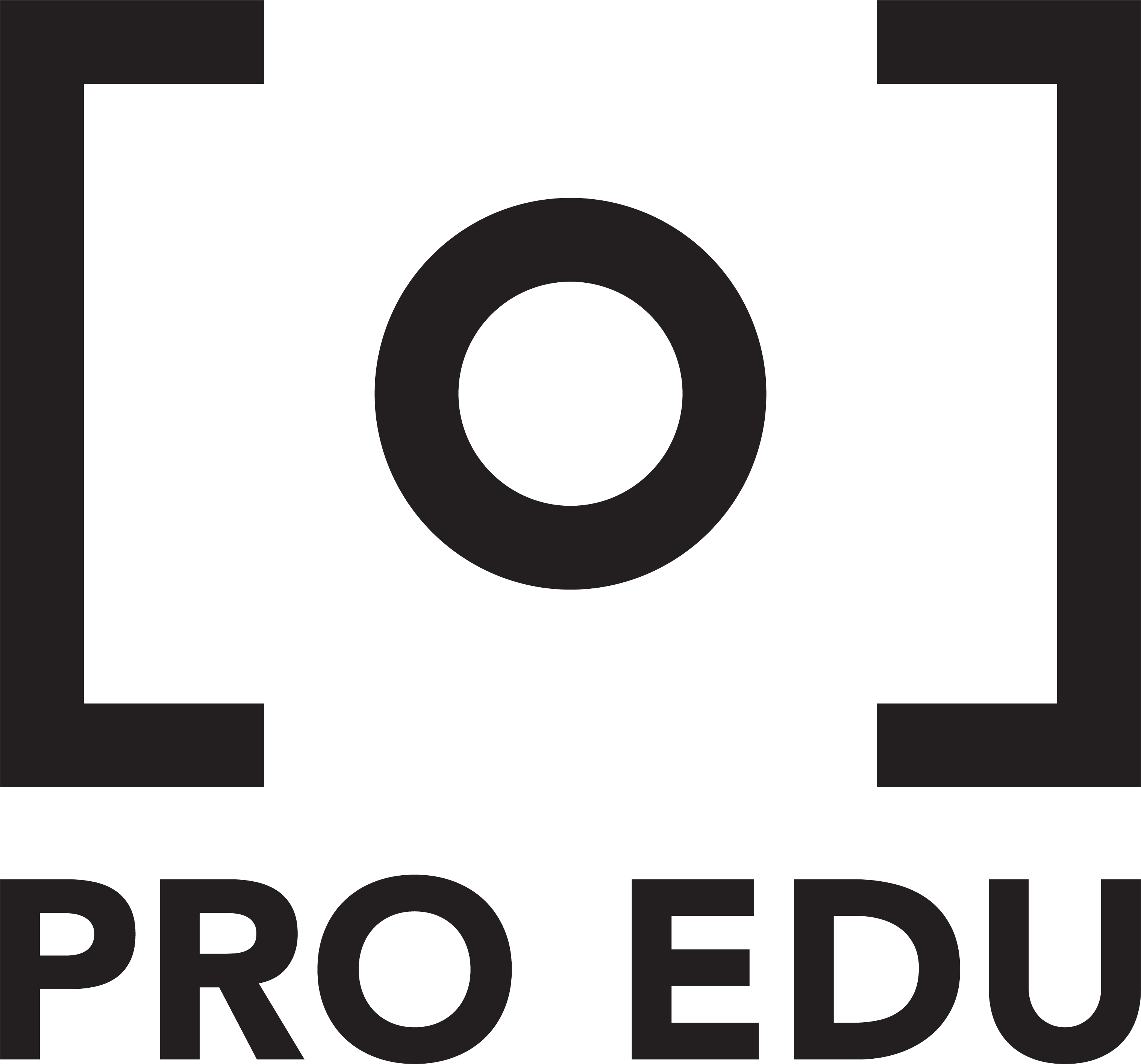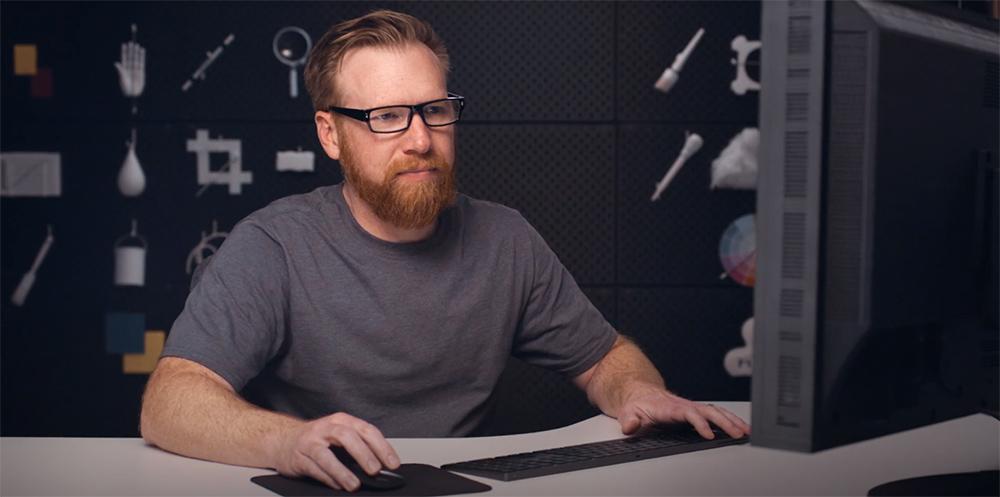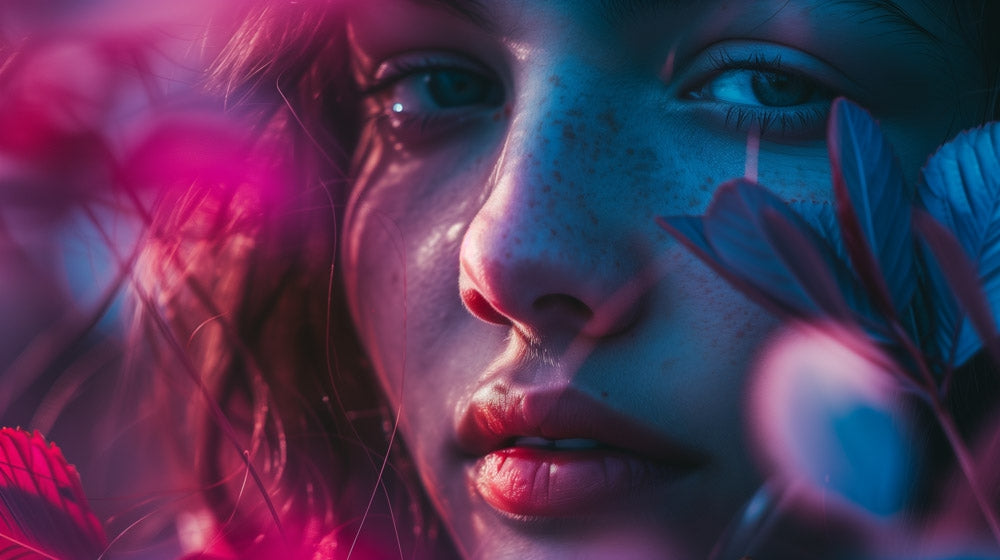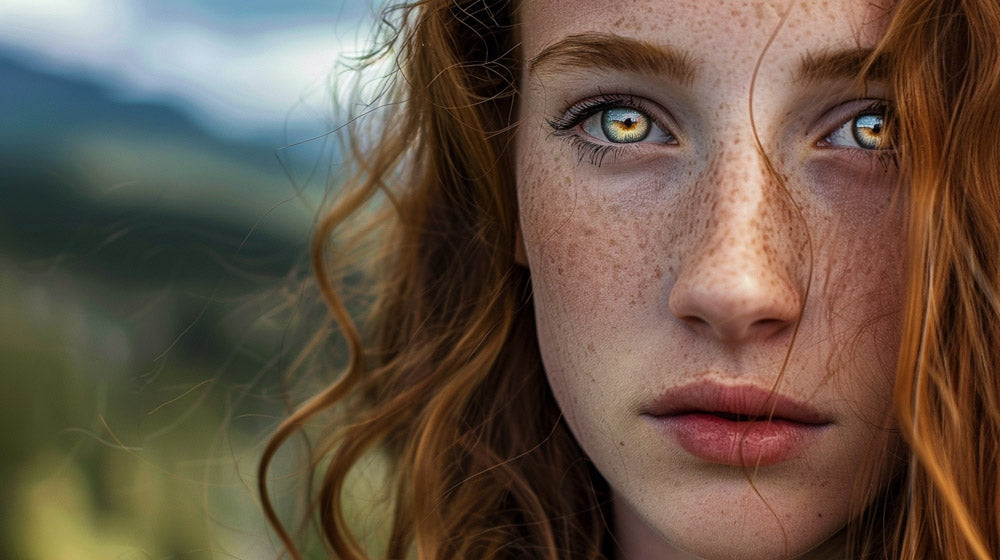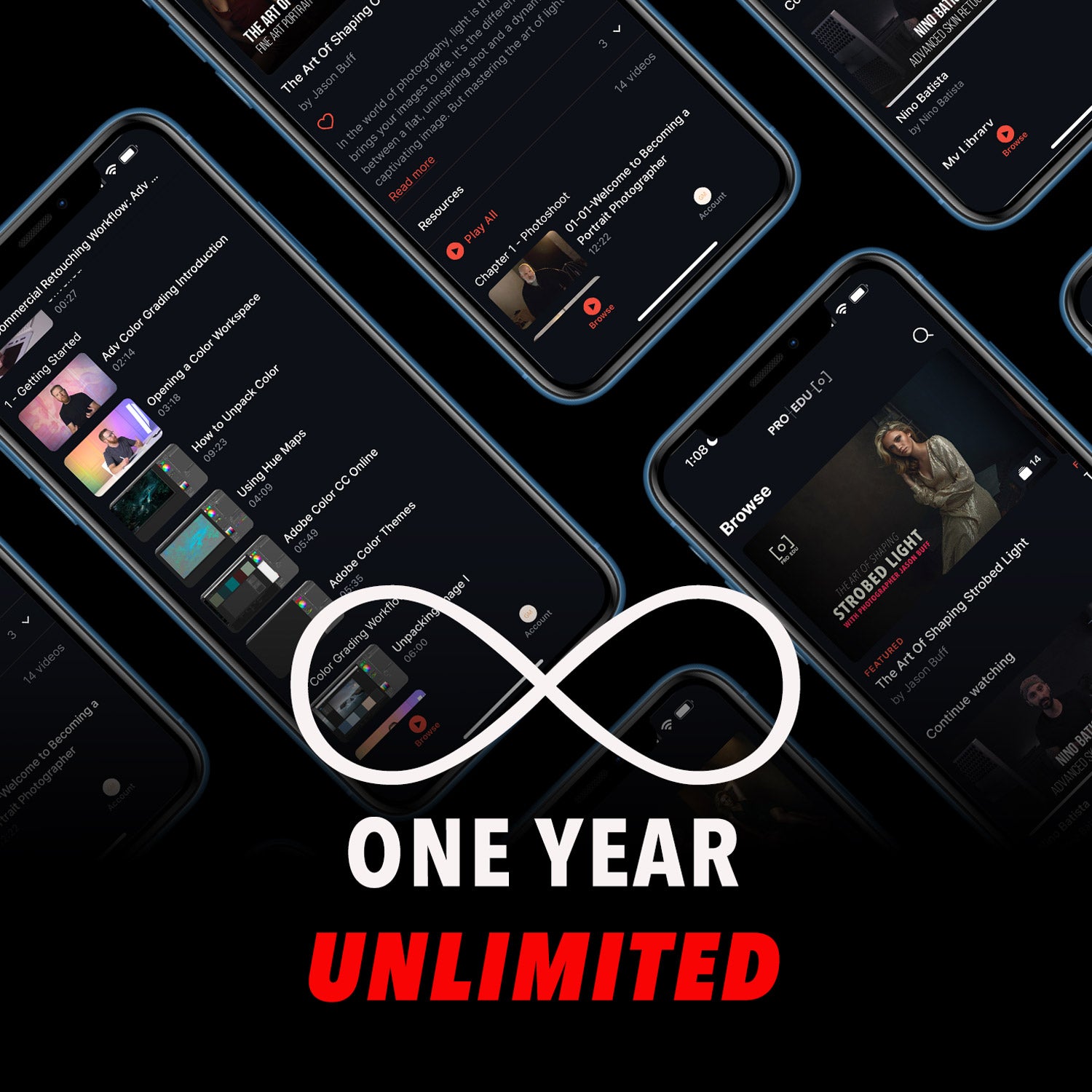Until now, I've been writing mostly about strategy and business but haven't really addressed how to learn photo retouching itself. I'm not going to pretend I don't have skin in this game, I have 5 full-length tutorials at ProEdu.com teaching how to learn photoshop and retouching from a professional commercial perspective.
I thought seriously about how to write this in a way that isn’t an infomercial for my tutorials. I'm going to explore all the different venues available for learning retouching, the ins and outs of each, the costs versus the benefits, and what to look out for.
The retouching education constellation
There are so many different platforms, events, physical venues, and voices out there in the photo retouching education universe. It can seem pretty daunting.
We all know that becoming good at portrait retouching, for instance, takes a lot of practice and a selective focus on retouching skin and the tools and techniques that come with it. The fear is often: "If I just pick an education track and put all that time in, what if I choose the wrong teacher and end up with the wrong skill set?"
Good question. It's one I struggled with myself when I was starting out.

My buddy Mark Heaps teaching mindblowing workflows.
There's no BFA in retouching
It’s a question I answer a lot. "No, there's no school for retouching." Most universities do not have retouching classes, let alone a course of study to graduate with a retouching degree. I see it changing a little bit, some photography programs offer retouching courses.
Select schools have had some photoshop wiz teachers, such as my friends Katrin Eismann at SVA and Chris Knight at Pratt. If you're perusing the spring semester catalog and see names like those, register for those classes asap!
What I recommend to university or even high school students who are interested in a retouching career track is, find a photographer in school to partner with. Work together to develop campaigns that look like the brands you want to work with. Target a style that is commercially viable, use the work for your school assignments, and when you graduate you'll have a retouching and photography portfolio that doesn't look like student work. Pretend that homework is real work.
Get paid to learn retouching
The #1 best way to learn retouching is to land a job doing it. Look for those lucky breaks, those foot in the door moments. Walk into photography studios and introduce yourself. Talk to companies that produce photography that you admire and let them know.
The best piece of advice I can give to folks starting out in retouching is to represent yourself honestly. I have too often seen resume's that claim a much higher degree of skill than the portfolio represents. Do not do this.
Be honest, tell hiring managers you are looking for a junior position and have a solid foundation in the fundamentals and tools in photoshop. Do not add that you also do graphic design, motion graphics, and underwater basket weaving. When hiring, I want someone who's focused on retouching who walks in the door ready to do that each day.
How to choose a mentor online
This is a big one that I think people miss a lot. If you are trying to start a new career as a retoucher, find mentors who work in that field. Look at their portfolio, do they demonstrate they have worked in the type of retouching industry you are pursuing?
If you want to get into portrait retouching find a mentor who has portrait retouching clients who inspire you. There are many great retouching teachers out there online. Choosing a mentor who is a working professional retoucher will give you real-world insights.

We invest a lot in making tutorials. When everybody’s not on their freakin phones...
Invest in tutorials - it builds commitment and momentum
Aaaaaand there it is. Sef's trying to peddle tuts. Yes I am! I myself have spent a lot of money over the years on tutorials, courses, webinars, and access to private groups. And no, I don't finish watching every single minute or finish every course module before buying the next one, just like everybody else!
I firmly believe that paying for tutorials creates momentum, and getting new tutorials generates a sense of positive inspiration. Getting into a new tutorial, learning new tools, and seeing new images evolve wires new pathways in the brain. In some ways, buying a new tutorial is like hacking your brain. A new tutorial can be a vehicle for getting out of a creative rut.
One important thing I should mention about the price of tutorials and access (because it’s very important to me these days). Not everyone has a hundred bucks to drop on a new tutorial. If you are serious about learning, find a way to connect with the instructor or even the company that’s selling the tutorials. There is almost always a way to get a deep discount or even get comp’d a free download for those who show passion and interest but might be strapped for cash.
Don’t abuse it, but just be honest and reach out. Those of us who produce educational content deserve to get paid for our work, but we’d rather get more of it out there. Especially into the hands and minds of those who might not be privileged enough financially to be able to spend on non-essential goods.
Join online communities, but use them wisely
A nice side effect of buying a tutorial is often access to a private online community. This is going to be a much more concentrated and dedicated community than many open communities online. Join photography communities, but also join groups specifically for retouchers.
When posting images for constructive criticism, it's good to ask some specific questions about challenges or areas of the images you want to be critiqued. You'll get more comments than just a general, "Hey what do you guys think of this?" Give folks a place to start with their retouching feedback
Do not post open calls for collaboration. It’s a little lazy and will look pretty lame if no one responds. Instead, spend time looking for a member you admire. Approach them with a direct message. Then, after you collaborate, post the results. I'd rather see a cool image than an open call with 2 likes and no comments.

Peep my humble youtube channel here.
Use the 'Tubes to find specific solutions
In my region, hiring managers had this phrase for certain applicants: "Youtube retouchers". Unfortunately, this was a pejorative at the time. I think it's evolving, but retouchers who learn just by combing through mountains of youtube retouching tutorials usually end up at the other end with a cobbled-together workflow full of bad habits.
If it's the best you've got, it's the best you've got. But I recommend using YouTube instruction mainly after you have learned retouching workflow from credible sources in order to get answers to specific subjects. None of us keep every single Photoshop process in our heads at all times. YouTube is great for a search like "Photoshop how to mirror healing brush" or "Photoshop displacement map".
Local user groups give a sense of community
It can be comforting to know other retouchers locally and have a regular check-in. If you're out of work though, try to keep it from looking like you just joined the user group to find work. If there isn't a local retoucher's meetup, start one. It doesn't have to be a workshop or presentation, just meet at the local pub or coffee shop.

Adobe MAX 2020. My all-time favorite conference.
Conferences can be well worth the expense
I think of conferences as a professional full-immersion vacation. Go for as many days as possible. You know what they say about needing 10 days to feel like you really went on vacation? If you can spend 4 or 5 days eating, drinking, and breathing retouching, photography, and art in general, something will happen to you on a molecular level.
Conferences are a tool for me to generate a whole-body feeling of inspiration. It fills the tank. I can usually run on that alone for a couple of months. A schedule of 2 or 3 conferences a year can keep the inspiration engine running.
Oh and there are often some pretty sweet parties involved.

I traveled to Taiwan in 2017 to teach these incredible people!
Workshops & Retreats - like a conference but puts you to work
Akin to conferences, these are great ways to really immerse yourself in the work. Though much more intimate, retouching and photography workshops and retreats surround you with dedicated like-minded artists and can be hugely inspirational. You will probably get more work done at workshops and retreats than at conferences.
Never stop learning
I have no problem using this cliche. It's true. Learning and inspiration go hand in hand, there can be no innovation in your work without it. Feeling in a rut creatively? Go learn something new.
Don't expect great art to suddenly spring out of a bored mind. Generating a consistent embodied feeling of inspiration is a practice, so don't just wait for it to arrive.
Get up and make it happen.

I'm a Commercial Retoucher, Writer, and Educator. I've worked with a lot of sports, tech, retail, and automotive brands. One of my life missions is to give better access to high-end retouching workflows for people who have traditionally not been included in the industry. Commercial retouching techniques have been closely guarded by a select few, and since I've had the privilege to be welcomed in those spaces, I feel obligated to share the tools and methods with others. In the hopes that when we all get better, art gets better. - Sef McCullough

